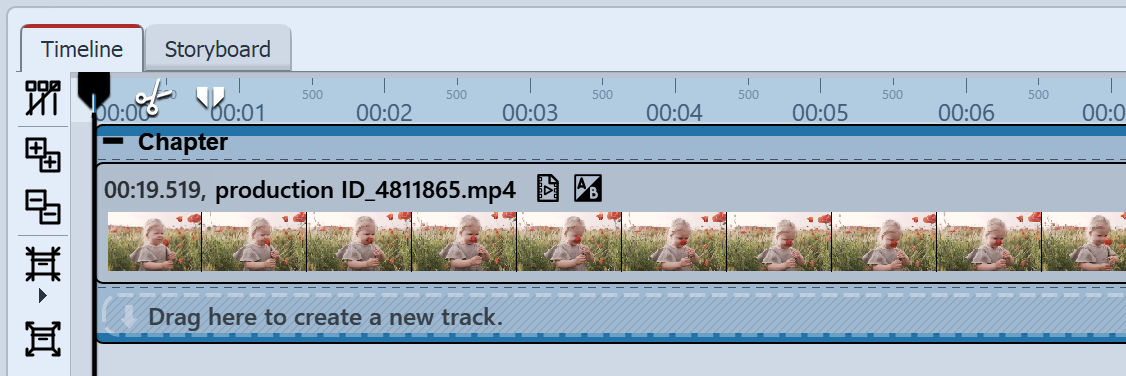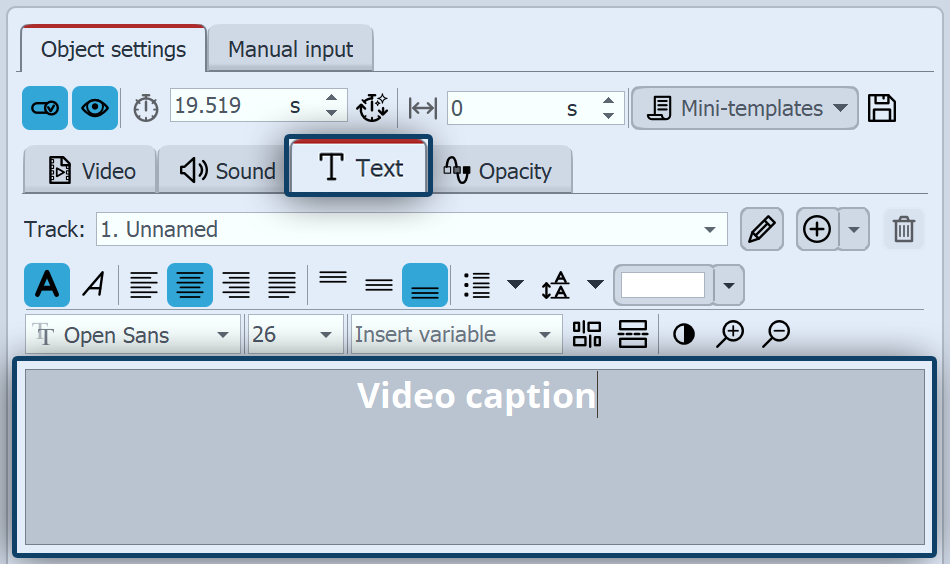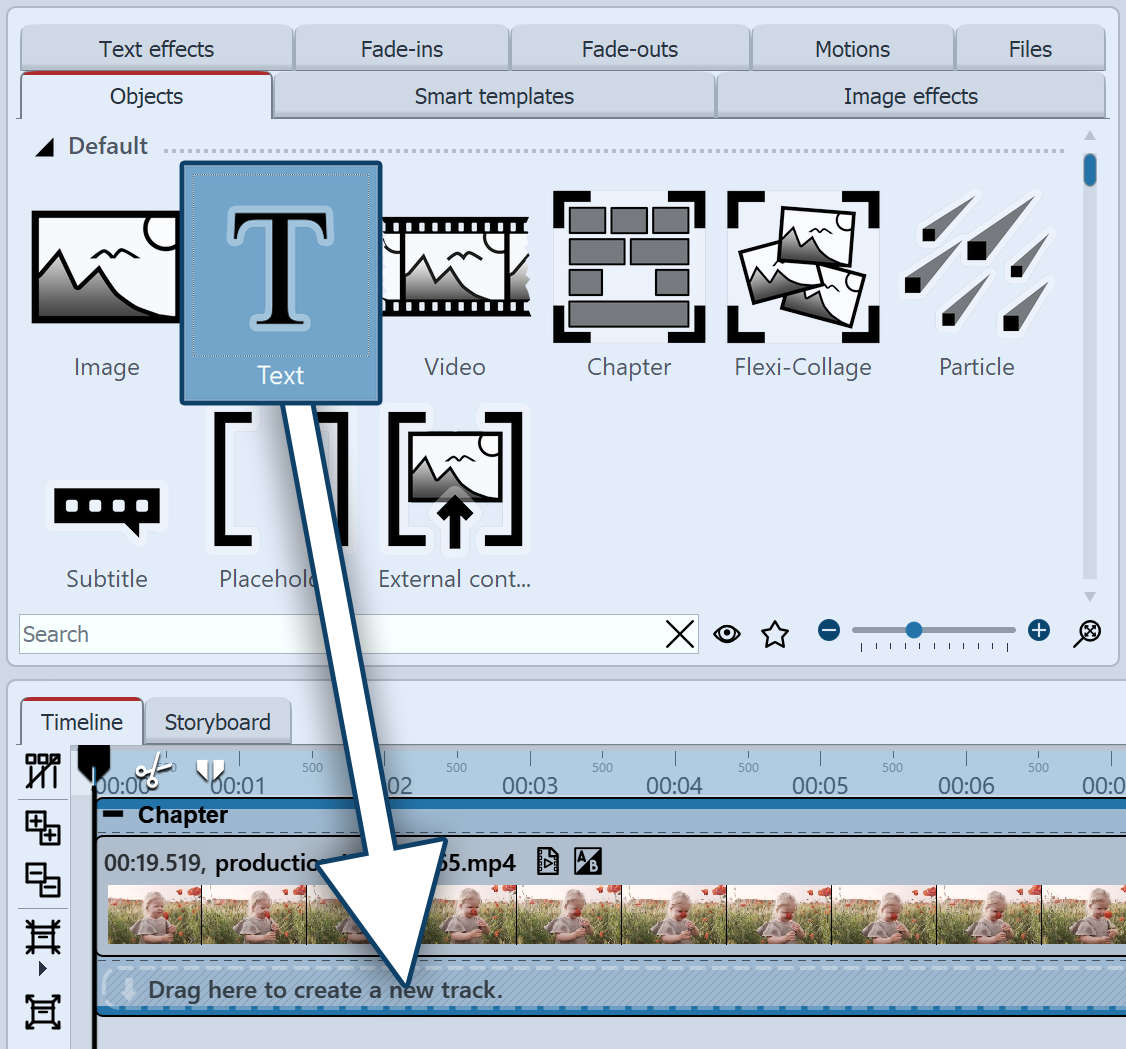|
<< Click to Display Table of Contents >> Labeling videos |
  
|
|
<< Click to Display Table of Contents >> Labeling videos |
  
|
You have several options for adding text to videos. These include
•direct labeling in the video properties on the Text tab
•multi-track working with video and text objects
• automatic subtitling (Transcription).
You can find out more about this in the following sections. Select the most suitable solution for your purpose.
Labeling in the video properties
 Video object in the Timeline In this variant, the video object is labeled directly. Select the video in the Timeline and go to the properties of the video object. |
 Video properties, Text tab In den Eigenschaften des Video-Objektes klicken Sie auf den Reiter Text. Geben Sie Ihren Text ein. Dieser wird über die gesamte Dauer des Video-Objektes angezeigt. As videos may be displayed for a very long time, a permanently visible caption for the entire duration of the video is not always useful. You can influence the display duration of the text with Text timing. Alternatively, you can work with individual text objects. |
|
If the video is cut after inserting a caption, the text is included in every video snippet. |
Multi-track working with video and text objects
This variant is particularly suitable if new captions (e.g. with the names of the protagonists) are to be repeatedly displayed on a longer video.
As videos are often displayed for longer than images, a permanently visible caption is not always useful. Videos therefore do not have built-in captions like images. If you want to label a video, use the Text object in a separate text track. To create a text track, you must first insert a Chapter.
 Insert text under video 1. Kapitel einfügenSobald ein Text-Objekt über einem Video eingeblendet werden soll, ist eine zweite Spur nötig. Diese erhalten Sie mit dem Kapitel-Objekt. Das Kapitel-Objekt lässt Sie mit mehreren Spuren arbeiten.Nutzen Sie das Startkapitel, das bei neuen Projekten vorhanden ist oder ziehen Sie ein Kapitel-Objekt aus der Toolbox in die Timeline. 2. Video einfügenIn die oberste Spur des Kapitels ziehen Sie das Video-Objekt. In die zweite Spur legen Sie ein Text-Objekt. 3. Text-Objekt einfügenAuf dem Video soll die Text-Spur eingeblendet werden. Dafür fügen Sie in der Timeline unter das eingefügte Video ein Text-Objekt ein. (Falls Sie keine permanenten Spuren sehen, ziehen Sie das Text-Objekt auf "Hierher ziehen, um neue Spur anzulegen".) Im Bereich Eigenschaften geben Sie im Textfeld den Text ein. Platzieren Sie bei Bedarf weitere Text-Objekte in der Spur unter dem Video. |
On the following pages, you will learn more about automatic transcription and text timing.